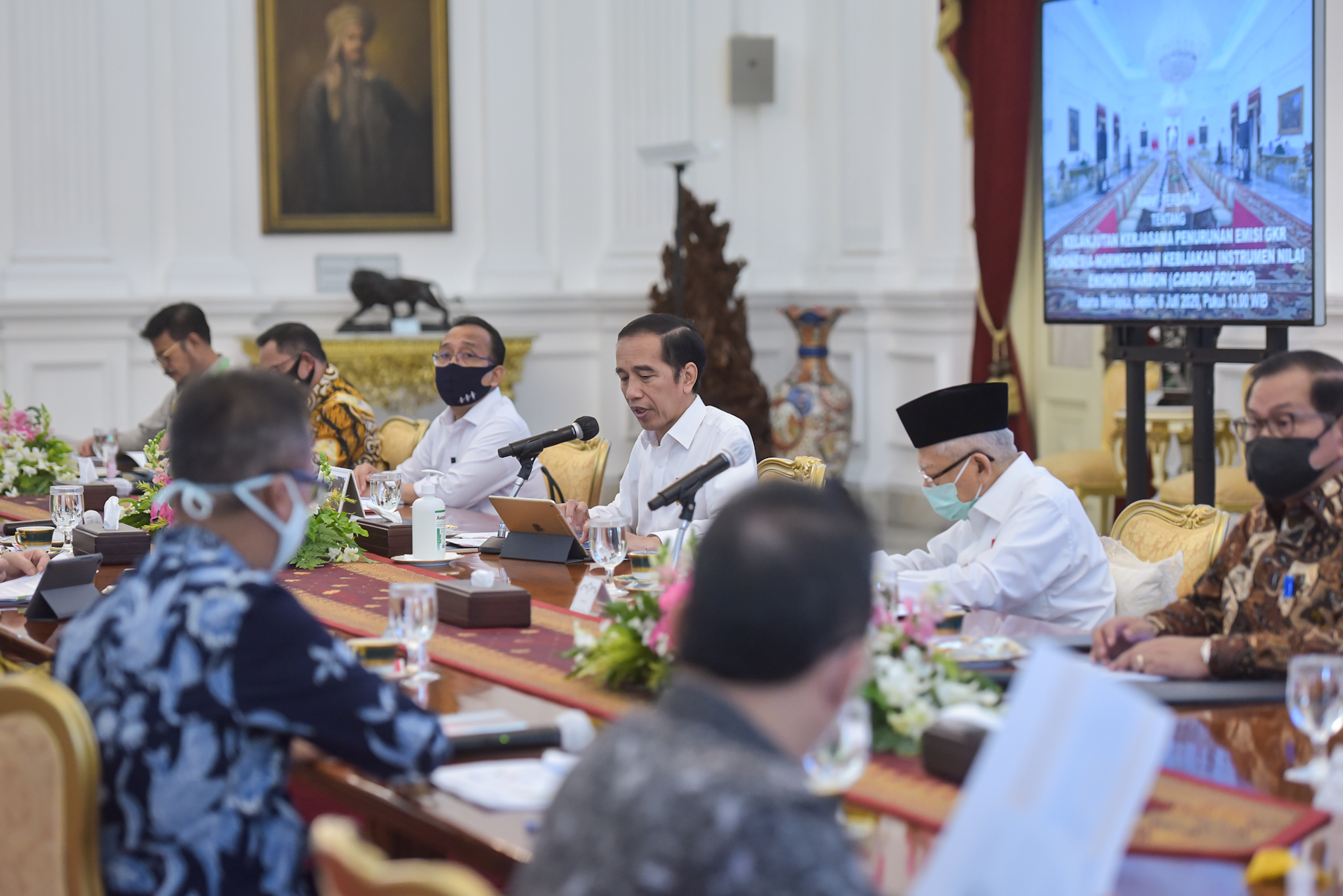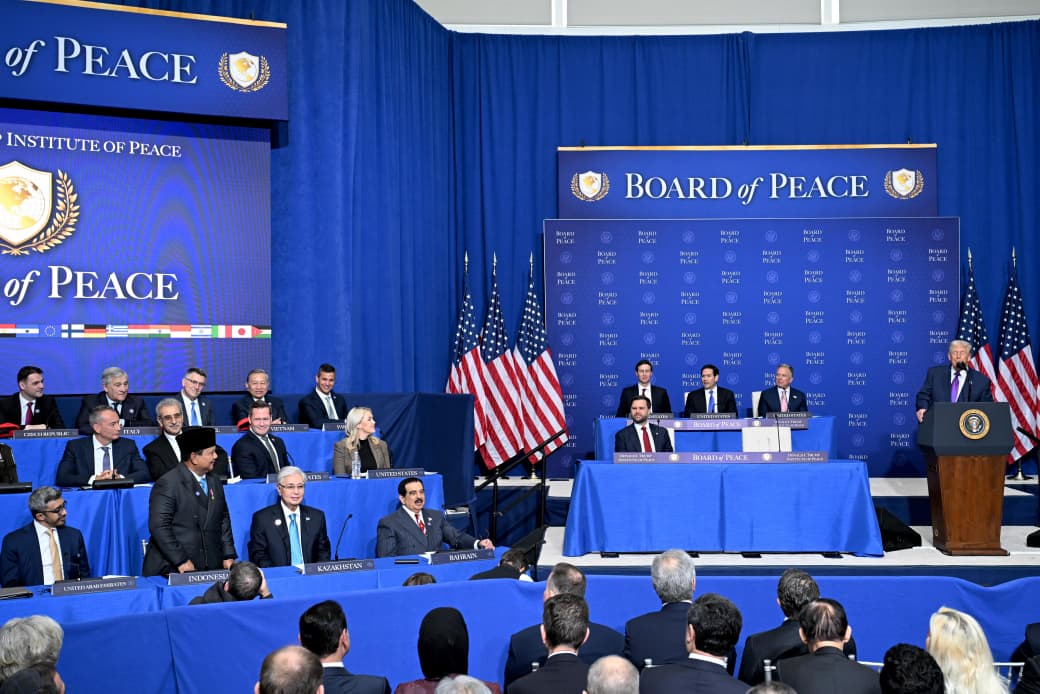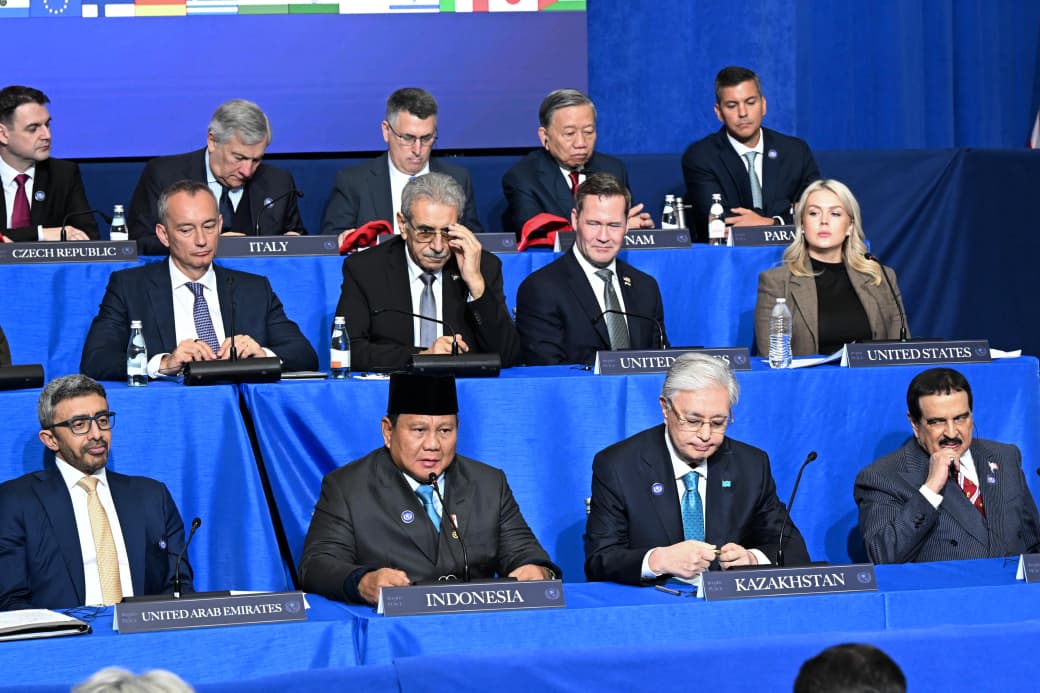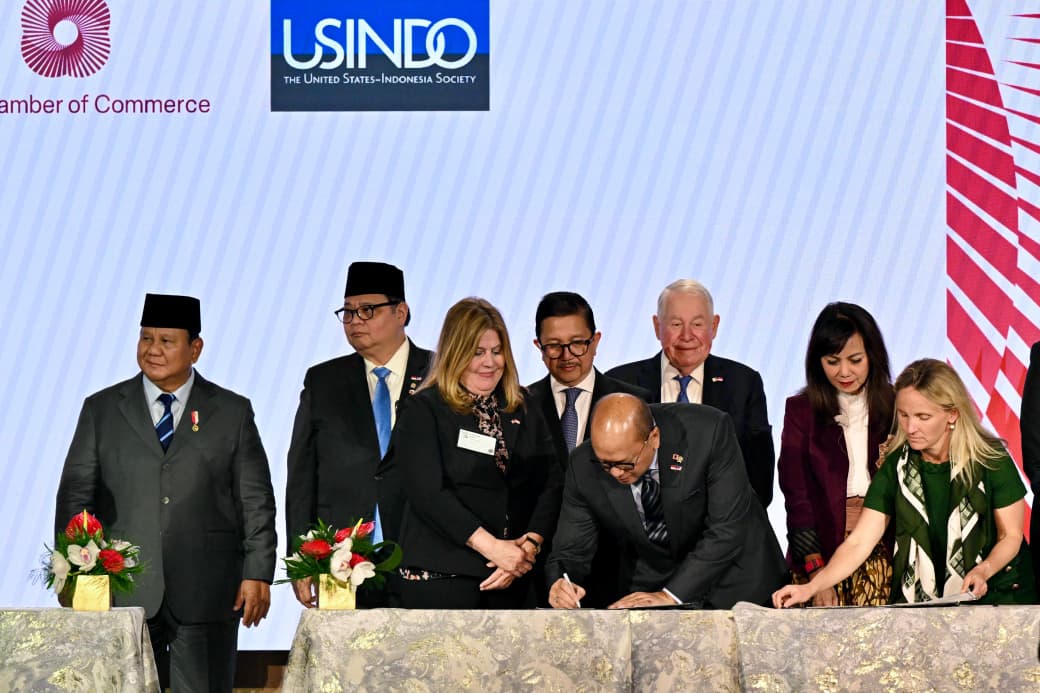President Jokowi Calls for Consistent Implementation of Environmental Rehabilitation

President Jokowi leads a Limited Meeting at the Merdeka Palace, Jakarta, on Monday (6/7). (Photo by: PR/Humas).
President Joko “Jokowi” Widodo led Limited Meeting on the Continuation of Indonesia-Norway Cooperation on Greenhouse Gas Emissions Reduction and Carbon Pricing Policy, at the Merdeka Palace, Jakarta, Monday (6/7).
On that occasion, the President highlighted some issues:
First, environmental rehabilitation programs to reduce greenhouse gas emissions such as peat protection and acceleration of forest and land rehabilitation must be continued.
“I also called for constant vigilance against land and forest fires since dry season is coming. In addition, several existing measures to protect biodiversity in an effort to protect forests must be ensured to run well on the ground,” he said adding that protection of peat land, mangrove forest, and other forests can be well-executed if the implementation on the ground runs well.
The President went on to say that development of biodiesel B30, B50, and B100, as well as development of solar energy and wind energy must be carried on.
Second, all steps to reduce greenhouse gas emissions must be completed immediately.
“Finalize the regulation, complete its financial instrument, including incentives for stakeholders that we must also observe. We also must ensure that this carbon control brings significant impact on target achievement of emissions reduction by 26 percent in 2020 and 29 percent in 2030,” he stated.
On that occasion, the President explained that actions to reduce greenhouse emissions have been long discussed by Indonesia and Norway.
“I think Indonesia since 2010 has strong commitment to reduce greenhouse emissions by 26 percent in 2020 and 29 percent in 2030,” he added.
Indonesia has set target for carbon gas reduction based on the ratified climate change conference by 29 percent in 2030 and 41 percent with support from international technical cooperation.
Based on climate change conference, Indonesia must reduce carbon emission by 17.2 percent in the forestry sector, 11 percent in the energy sector, 0.32 percent in the waste sector, 0.13 percent in the agricultural sector, and 0.11 percent in the industrial and transportation sectors. (TGH/EN)
Translated by : Rany Anjany
Reviewed by: Mia Medyana







